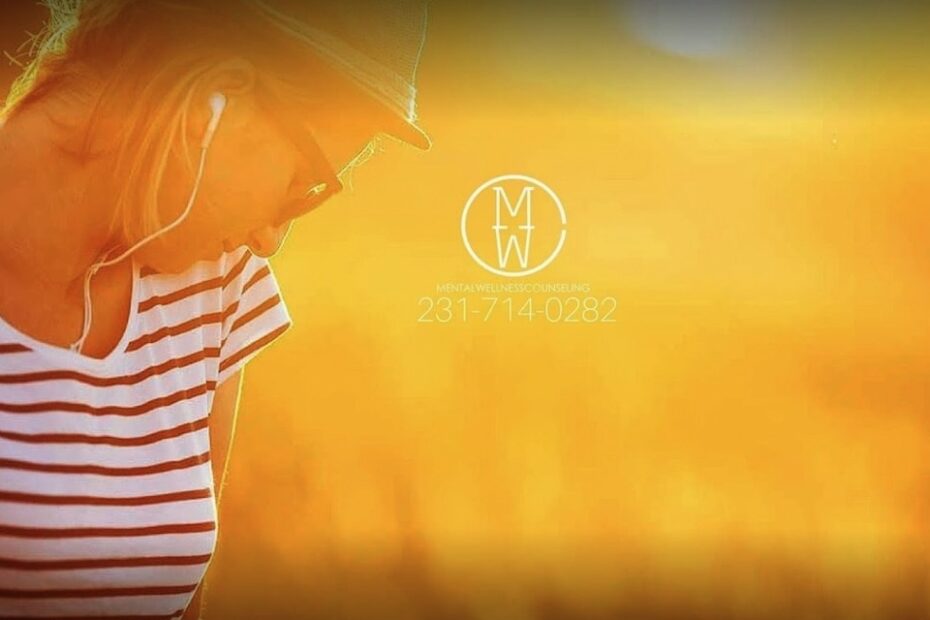Redefining Healthcare is a community effort, and we are honored to help cultivate a healthier community by sharing helpful, relatable information and resources from our members and the local health and wellness community at large to encourage healing and personal wellbeing.
We recently caught up with Nicole Ball, LMSW the Owner of Mental Wellness Counseling in Traverse City to learn more and share about her practice, areas of mental health expertise and how she shares her approach to health and wellness with supportive community offerings and services.
Q. What is your full name, title, and area of expertise?
A. My name is Nicole Ball, LMSW and I’m the owner of Mental Wellness Counseling in Traverse City. We are a team of Mental Health therapists who specialize in helping people work through trauma, assist in helping people through life’s transitions and treating anxiety disorders. I’m also a professor of Social Work at Ferris State University’s Social Work Program.
Q. What does a typical session look like? What can your clients expect?
A. When a client calls us or reaches out through our website, they will talk to Emily Hale, our intake coordinator, who will identify who is the best therapist for them at MWC.
She will help by identifying what the clients’ needs are, what they are facing, if they want face to face or virtual sessions, and financial/insurance options for them.
After a client is matched with a therapist an intake session will take place. At the intake session the clinician will get to know the client and learn about their presenting problem, assessing the situation and hearing their story. If the client feels like it is a good fit, a second session will take place to determine the client’s goals, and a plan to reach those goals.
Q. Is there an introductory exercise or reflection you can walk us through to tap into the possibilities of healing through your service and area of expertise?
A. I like to use symbolism and metaphors when I work with both my clients and my students. It offers an opportunity to visualize our experience of life in a way that may seem less abstract, more solid or relatable and understandable.
One analogy that I use often is the idea of rocks in our backpack. Imagine that you are wearing a backpack. This is obviously an invisible backpack, but imagine it hanging on your back. You can feel the straps coming across your arms and feel the weight at the top of your shoulders across your back lightly pulling down. Now imagine that there are rocks in the backpack. The rocks represent things that are bothering us, things that we are holding onto, things that take up space in our lives. For some of us we have small rocks, like pebbles. Rocks that represent our day to day stresses and responsibilities, the things on our to do list. Maybe there are just a handful, for some of us maybe a bucketful. Maybe some days those rocks are bigger and heavier because of some stressful event going on in our lives. Or maybe we are just having a rough day and the rocks seem just a little heavier. Can you feel the heaviness of your own backpack?
Now, imagine if those rocks were even bigger like bricks or boulders. So heavy that it makes life hard to walk through because of the sheer weight of the backpack on your shoulders. These bricks or boulders represent the trauma we have experienced, the pain, the resentment we are holding onto, the depression, deep anxiety or fear, maybe anger or resentment, loss or grief.
Walking through life every day with a backpack full of big rocks is hard. Sure, we could carry a heavy backpack on our shoulders for a mile, maybe a few…but to get up everyday and carry boulders on our back as we try to go to work or school, try to raise children, be present in our relationships, attempt a social life, be there for others or even take care of ourselves?
I often encourage my clients to make some decisions about the rocks. With a backpack full of rocks, holding you down, it may seem impossible to pick just one rock to focus on, but we must start somewhere. Maybe pick an easy rock first. Create a plan, take care of the rock and your backpack will be lighter. Maybe just a little lighter…but with time, one rock at a time, life will be easier to walk though when there isn’t so much weight.
Another option is to give some rocks away. Sometimes we hold so tightly on to a large rock because the thought of ever being able to tackle it feels scary and overwhelming. Or maybe we have had this large rock for so long it feels like it is forever attached. But how much lighter would your backpack be if you gave a rock away? Seek out others to hold space for you… for your rocks. This could be a family member, a friend or a counselor. Anyone who will support you, not hold judgement against you and who will validate your experience and your feelings. Maybe offering your rock to God, to nature, to the universe. Allowing someone else to hold a rock for you means some of the weight is taken away, making life a little easier to walk through
Q. How can individuals apply your practice during times of uncertainty?
A. Being open and vulnerable can be hard, but as with the backpack exercises, you can see how beneficial it can be, especially in times of uncertainty. Also we oftentimes hold off on addressing the stress or feelings of anxiousness until it has reached a high level of intensity.In other words, we are on the defense with our stress. We wait until the damage has already been done to address it. We feel the effects of this damage in the form of muscle tension and body aches, gastrointestinal issues, sleeping problems, skin issues, increased racing thoughts, feelings of hopelessness and increased moodiness. What’s worse is long-term effects of chronic stress include high blood pressure, heart disease, diabetes, depression or anxiety disorders. But there is another option to address our stress. We can be on the offense. When we are on the offense we can be anticipate what our minds, bodies and relationships need before the damage comes. We can honor ourselves by practicing self-care on a daily or weekly basis. By doing this we are building up reserves for ourselves to better handle stressful situations, be present for others and all while not feeling like we are on empty. So, what can you do to be on the offense? Take care your mind. Make time for yourself, offer a quiet space for your thoughts, meditate, journal how you are feeling or talk a mental health professional about your stress. Treat your body. Make time for exercise, yoga, got for a walk, meditate, visiting your massage therapist, acupuncturist or chiropractor. Also set boundaries with your time, say “no” when you can, and remember that it’s okay to put yourself first sometimes. Rather than waiting until the damage has already been done and then attempting to defend our sense of balance, we can be on the offense.
Q. What kind of feedback do you regularly hear from clients?
A. Talking helps, having someone hold them accountable helps, making a plan with action steps helps, putting yourself first helps, working through old or new wounds helps.
Q. How can our readers connect with you? Learn from you?
A. Visit our website! www.mentalwellnesscounseling.com, follow us on Facebook, or reach out to Emily Hale, our intake coordinator to schedule a session. I can also be reached directly via email at nicole@mentalwellnesscounseling.com



